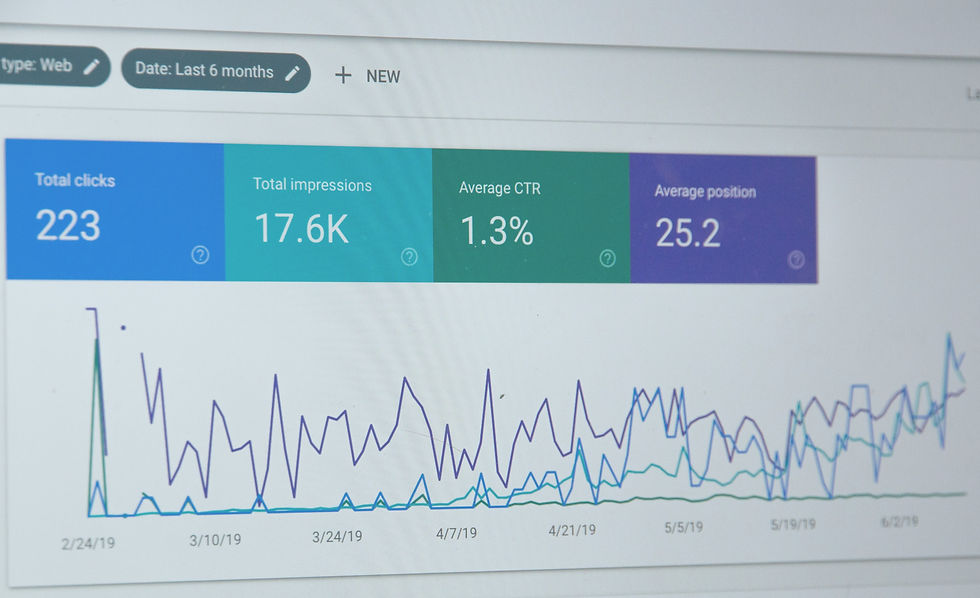Unlock Online Growth: Master the Components of a High-Performing SEO Website
- Aug 2, 2023
- 3 min read
Updated: Aug 6, 2025
Your website has one job: get found, build trust, and convert. But without the right structure and SEO foundation, it’s just another needle in the internet haystack. Let’s fix that.
What Makes a High-Performing SEO Website?
In today's digital landscape, having a website is no longer enough. It must be fast, intuitive, trustworthy, and visible especially to Google. Whether you're a small business owner or digital DIYer, here’s your step-by-step checklist for a site that not only looks great but works hard.
Key Components of a High-Performing Website
1. Clear and Intuitive Navigation
Visitors shouldn’t have to dig for answers. Keep your navigation simple, consistent, and structured. Use descriptive labels (no vague “Services” dropdowns) and breadcrumb trails to reduce bounce rates.
2. Engaging, Optimized Content
Your content should educate, inspire, or solve a problem. Use headers, bullet points, and keywords naturally. Every word on your site from your homepage to blog posts should speak directly to your ideal customer’s needs.
Pro Tip: Use tools like Google Search Console or AnswerThePublic to shape content around real search queries.
3. Strategic Visuals That Convert
Visuals should enhance your message, not distract from it. Use high-quality images, short-form videos, and conversion-friendly banners. Infographics are also great for AEO (Answer Engine Optimization) and Google’s new Search Generative Experience (SGE).
4. Contact Info & Strong CTAs
If a visitor can’t quickly find how to contact or buy from you, they’ll leave. Position phone numbers, forms, and live chat buttons above the fold. Use bold CTAs like “Get Your Free Estimate” or “Let’s Build Something.”
5. Mobile-First, Always
Over 60% of web traffic is mobile. Your website must adjust to every screen size and load fast on 4G. Use Google’s Mobile-Friendly Test to check your site’s responsiveness and Core Web Vitals.
🔍 Mastering SEO: 5 Must-Have Strategies for Success
Search Engine Optimization (SEO) is how your website gets discovered. It's not just about keywords—it's about helping search engines understand the value you offer and matching your content to real-world searches.
1. Keyword Research That Goes Beyond the Basics
Target long-tail keywords with clear intent. Think: “affordable HVAC repair in Conway AR” instead of just “HVAC repair.” Tools like Ubersuggest or Semrush can help uncover keywords your competitors are missing.
2. On-Page SEO: Metadata That Works Hard
Each page needs a unique meta title and description. Use H1 and H2 tags properly, include alt text on all images, and make URLs clean and keyword-rich.
Example:Bad: /page123?id=1Good: /small-business-seo-guide
3. Backlink Building with Purpose
Not all backlinks are created equal. Focus on getting featured in niche blogs, local business directories, and credible news sources. These links boost your domain authority and trust with Google.
4. Mobile-Friendly SEO Practices
From compressed images to lazy loading, your mobile site should be optimized for speed. Google now uses mobile-first indexing—so if your mobile site lags, your rankings will too.
5. Fresh, Ongoing Content Strategy
Publishing regular blogs, case studies, or service updates shows Google your site is active. Answer real questions your audience is asking—and watch organic traffic grow.
Final Thoughts: Build Smart. Optimize Constantly.
A high-performing website isn’t about having the most pages—it’s about having the right pages, structured and optimized for the user and search engines. Combine powerful design with effective SEO, and your site becomes a 24/7 sales machine.
Keep refining. Stay updated on trends. And above all—build with purpose.
Want help transforming your site into a lead-generating machine?Let’s talk digital strategy built for small business success.




.jpg)
Comments